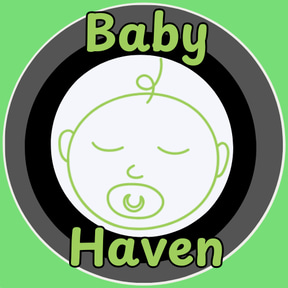Deciding the Duration: How Long Should I Breastfeed My Baby?
Unraveling the ideal duration for breastfeeding is a multifaceted choice for many new parents. This guide offers insights to aid in navigating this critical aspect of infant care.


Breastfeeding is a deeply personal choice for new mothers, influenced by various factors such as health recommendations, personal preferences, and individual circumstances. With conflicting advice and societal pressures, many parents find themselves grappling with the question: How long should I breastfeed my baby? In this comprehensive guide, we'll explore the factors to consider when making this decision and provide insights into the benefits of extended breastfeeding.
Understanding Breastfeeding Duration
Breastfeeding duration refers to the length of time a mother chooses to exclusively breastfeed her baby before introducing other foods or weaning. The World Health Organization (WHO) recommends exclusive breastfeeding for the first six months of a baby's life, followed by the introduction of complementary foods alongside continued breastfeeding up to two years of age or beyond.
Factors Influencing Breastfeeding Duration
Health Benefits: Breast milk provides essential nutrients and antibodies that support a baby's immune system and promote healthy growth and development. Many mothers choose to breastfeed for an extended period to maximize these health benefits for their child.
Bonding and Attachment: Breastfeeding fosters a unique bond between mother and baby, promoting emotional connection and security. For some mothers, this bond is a significant factor in deciding to breastfeed for an extended period of time.
Maternal Lifestyle: The duration of breastfeeding may also be influenced by maternal lifestyle factors such as return to work, childcare arrangements, and personal preferences. Balancing breastfeeding with other responsibilities can be challenging for some mothers, leading to earlier weaning.
Cultural and Societal Norms: Cultural beliefs and societal attitudes towards breastfeeding can impact a mother's decision regarding breastfeeding duration. In some cultures, extended breastfeeding is common and socially accepted, while in others, there may be pressure to wean earlier.
Benefits of Extended Breastfeeding
Continued Nutrition: Breast milk remains a valuable source of nutrition even as babies transition to solid foods. Extended breastfeeding ensures that babies receive essential nutrients and antibodies that support their ongoing growth and development.
Immune Support: Breast milk contains antibodies that help protect babies from infections and illnesses. Continuing to breastfeed beyond infancy can provide ongoing immune support, reducing the risk of common childhood illnesses.
Emotional Well-being: Extended breastfeeding can promote emotional security and comfort for both mother and baby. The close physical contact and nurturing associated with breastfeeding contribute to a sense of closeness and well-being for both parties.
Developmental Benefits: Breastfeeding has been linked to cognitive and emotional development in children. Extended breastfeeding may offer additional developmental benefits, although further research is needed to fully understand the long-term effects.
Making the Decision
Deciding how long to breastfeed is a deeply personal choice that varies from mother to mother. It's essential to consider your own needs, your baby's needs, and the unique circumstances of your family when making this decision. Here are some tips to help you navigate this process:
Educate Yourself: Learn about the benefits of breastfeeding and the recommendations from health organizations such as the WHO and the American Academy of Pediatrics (AAP). Understanding the evidence-based benefits of breastfeeding can help inform your decision.
Consult with Healthcare Providers: Discuss your breastfeeding goals and concerns with your healthcare provider, such as your obstetrician, pediatrician, or lactation consultant. They can provide personalized guidance and support based on your individual circumstances.
Listen to Your Instincts: Trust your instincts as a parent and follow your intuition when making decisions about breastfeeding. You know your baby's and your family's needs better than anyone else.
Seek Support: Surround yourself with supportive individuals who respect your breastfeeding goals and provide encouragement along the way. Joining breastfeeding support groups or online communities can connect you with other mothers who share similar experiences and challenges.
The question of how long to breastfeed is one that many new mothers grapple with as they navigate the complexities of parenthood. Ultimately, the decision is a deeply personal one, influenced by a combination of health recommendations, cultural beliefs, and individual circumstances. Whether breastfeeding for six months, one year, or beyond, what matters most is that you make the choice that feels right for you and your baby.
